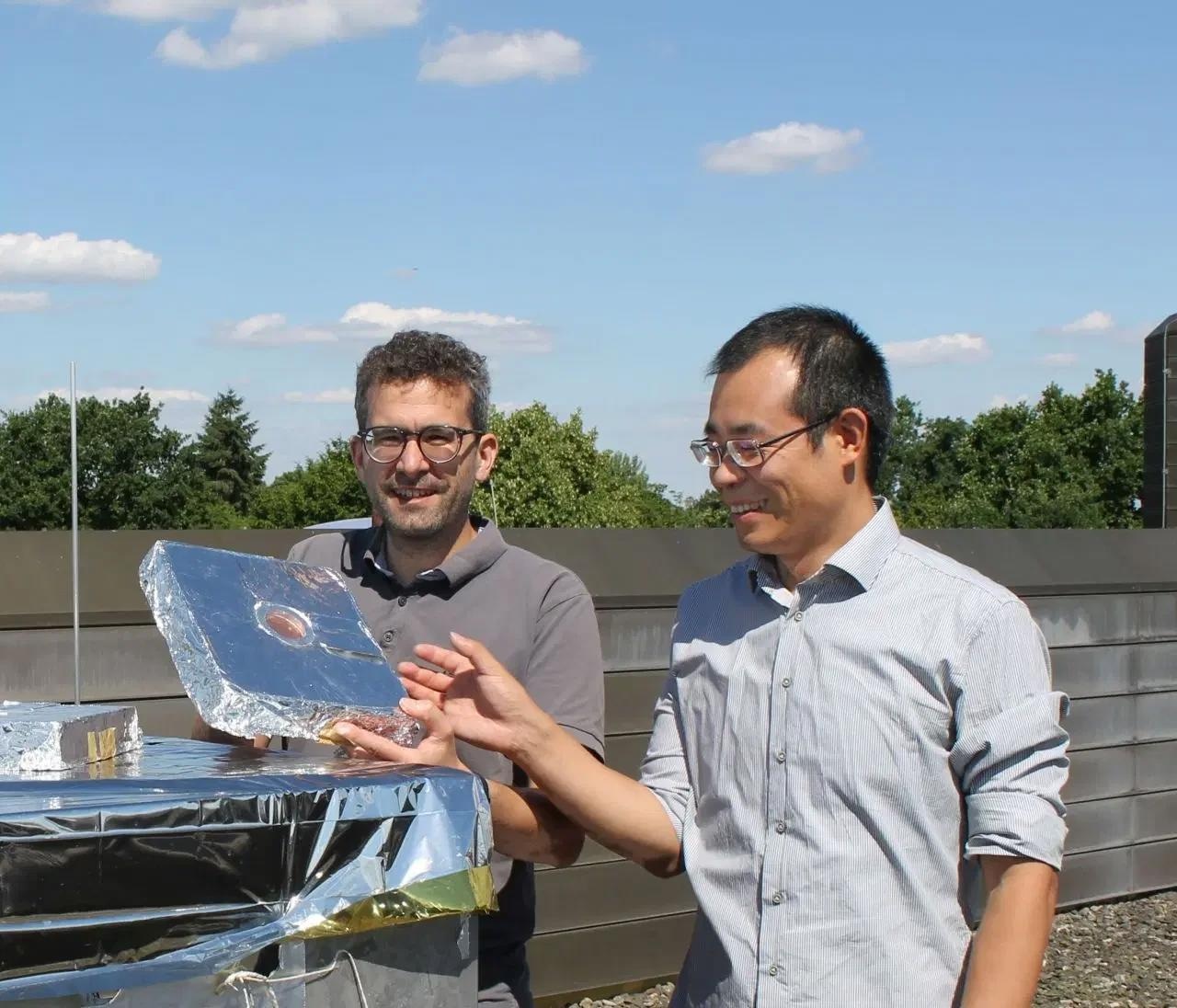Reviewed by Alex SmithJul 19 2022
Passive day cooling is a promising method for long-term energy consumption reduction. It removes stored heat without requiring external energy and prevents buildings from becoming overheated by solar radiation.
 Prof. Dr. Markus Retsch and Dr. Qimeng Song (from left) inspect a sample as studied so far in field trials. Sunny weather is a basic prerequisite for this. Image Credit: UBT / Chr. Wißler.
Prof. Dr. Markus Retsch and Dr. Qimeng Song (from left) inspect a sample as studied so far in field trials. Sunny weather is a basic prerequisite for this. Image Credit: UBT / Chr. Wißler.
The materials used for passive cooling can now be accurately characterized and compared by researchers at the University of Bayreuth, independent of the weather and ambient circumstances.
To evaluate high-performance cooling materials, the measuring setup described in Cell Reports Physical Science is the first step toward a standardized, universal test method.
The worldwide increase in fossil energy consumption is still contributing to global warming and is a major reason why our cities are heating up. Cooling buildings during the day using passive cooling materials has great potential to establish itself as an effective energy-saving tool.
Dr. Markus Retsch, Professor, Physical Chemistry I, University of Bayreuth
Retsch added, “Many technologically interesting materials and material classes have therefore been developed for heat dissipation, but it is still an unsolved challenge to precisely determine and compare their performance. The laboratory setup we designed helps to overcome this difficulty. It is a test system that makes important contributions to the characterization of existing cooling materials and the design of new ones, regardless of the weather.”
The essential elements influencing the performance of passive cooling are replicated by the lab-based test system.
Therefore, a solar simulator, an aluminum dome chilled with liquid nitrogen that absorbs heat, a changeable filter that only allows light rays of a specific wavelength to pass through, and a heatable gas flow that can be used to control the temperature of the environment are essential components.
This makes it possible to simulate on a small scale the strength of solar radiation, the temperatures impacting the cooling materials, and other environmental variables. Outside, these variables are constantly changing and are uncontrollable, but the new Bayreuth measuring equipment allows for precise adjustment of these variables.
As a consequence, the test results can be repeated whenever, regardless of the time, location, or weather.
Only in this way can the characteristics and behavior of cooling materials be accurately described and compared across the board. The measuring system is reliable, reasonably priced, and has the added benefit of being easily replicable.
The Bayreuth scientists have demonstrated the high performance and reliability of the test system on three different materials: a silver mirror (Ag), a film of polydimethylsiloxane (PDMS) applied to silver, and a graphite-coated silicon wafer.
In doing so, they not only tested the heating and cooling of the materials but also determined their cooling performance.
Our measurement setup is the first step towards standardized performance comparisons between cooling materials that have been developed around the world under very different climatic and weather conditions. Such a test system is an important prerequisite for passive cooling to become a globally applied technology for significantly reducing energy consumption.
Dr. Qimeng Song, Study First Author and Postdoctoral Researcher, University of Bayreuth
Journal Reference:
Song, Q., et al. (2022). A Tailored Indoor Setup for Reproducible Passive Daytime Cooling Characterization. Cell Reports Physical Science. doi:10.1016/j.xcrp.2022.100986